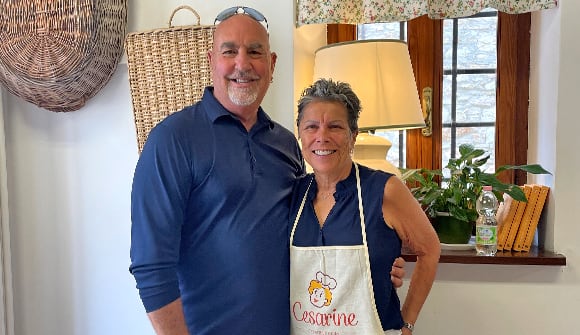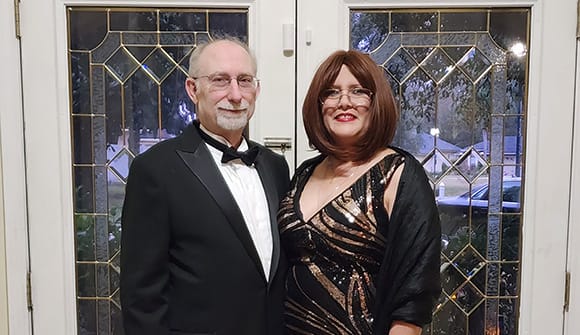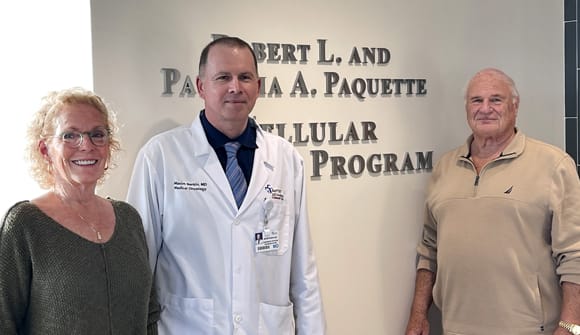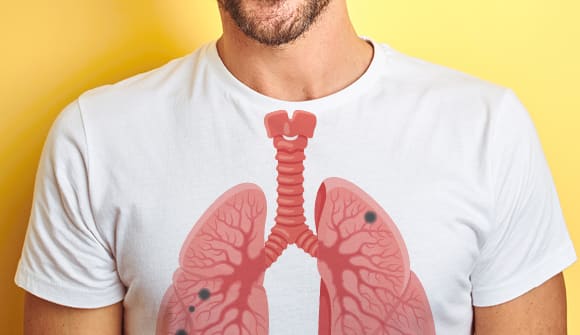Smoke-free lung cancer
Potentially deadly disease can develop in nonsmokers.
Article Author: Juliette Allen
Article Date:
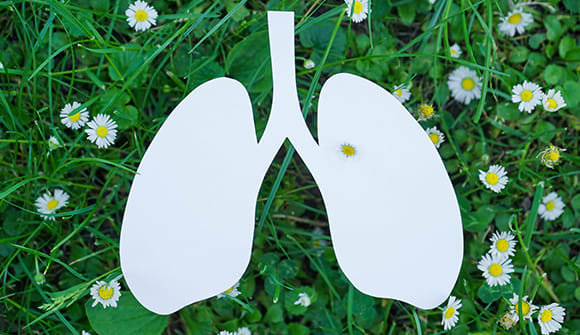
The bold labels on cigarette packages stating, “WARNING: Smoking causes cancer,” couldn’t be clearer. Though cigarette use is widely known to be one of the largest contributors to lung cancer, an estimated 10% to 20% of people who develop the disease are considered nonsmokers.
“This means they’ve smoked less than 100 cigarettes in their life,” explained David Hall, MD, a thoracic surgeon with Baptist MD Anderson Cancer Center. “The key message is this: Just because you’re not a smoker doesn’t mean you’re not at risk.”
Dr. Hall answered critical questions about the potentially deadly disease.
What are the symptoms of lung cancer in nonsmokers?
“Most early lung cancers don’t produce any symptoms at all, which is why screening is so important for people who have a history of smoking,” Dr. Hall said. “For nonsmokers, though, the disease is often found during an X-ray or CT scan for something unrelated, like after a car crash, for example.”
According to Dr. Hall, people who experience the following symptoms should contact their primary care physician for further testing:
- Persistent cough
- Cough that produces blood
- Shortness of breath
- Pneumonia
- Fever and/or chills
- Unexplained weight loss
“Young people often dismiss these symptoms, but they warrant further evaluation when they linger or don’t improve the way a typical illness would,” Dr. Hall said.
Is treatment the same whether someone has a history of smoking?
Doctors take into account the stage, size and location of the tumor, along with the patient’s overall health, when determining how to treat lung cancer. A person may need surgery, chemotherapy and/or radiation, regardless of history of smoking.
“Nonsmokers and younger people tend to be in better health and can tolerate surgery better than older individuals and those who have lung disease resulting from years of cigarette use,” Dr. Hall said.
He added, “There have been tremendous advances in recent years, and new targeted therapies and immunotherapies are being used to treat lung cancer that arises from genetic mutations, which is often the case in nonsmokers.”
What puts someone at higher risk for lung cancer?
Lung cancer risk factors for nonsmokers include:
- Personal or family history of lung or other cancers
- Exposure to environmental toxins such as radon or asbestos
- Advanced age
- Underlying lung disease such as pulmonary fibrosis or chronic obstructive pulmonary disease (COPD)
Early detection gives patients the best shot at successfully beating lung cancer. Dr. Hall encourages everyone to take charge of their health, regardless of whether they’ve smoked.
“Be your own best advocate,” he said. “Though you can’t eliminate your risk of cancer entirely, you can take steps to reduce it by maintaining a healthy lifestyle and choosing to live smoke-free.”
Not a smoker but concerned with symptoms you’re experiencing?
Your primary care physician can perform an evaluation and refer you to a specialist if needed. To find a Baptist Primary Care doctor convenient to you, call 904.202.4YOU (4968) or fill out the appointment request form.
Those who have a history of smoking and would like to learn more about potentially life-saving screening may visit baptistjax.com/lungscreening.

